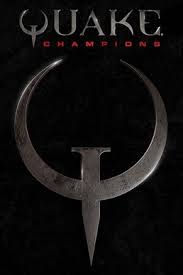In a remarkable turnaround for the arena shooter genre, Quake Champions has witnessed an astonishing surge in its player base, with concurrent user numbers soaring nearly 300% above the game’s monthly average. Typically, the free-to-play title, developed by id Software and published by Bethesda, maintains an average of approximately 500 concurrent players. However, over the weekend, this figure climbed to nearly 2,000, marking a significant milestone for a game that has seen relatively stagnant growth since its full release in August 2022.
The surge follows the release of Season 24 on 12 September, a significant update that introduced new content and gameplay enhancements. While the game has consistently been free-to-play, the influx of players cannot be attributed to a sale or a major promotional event, leading to much speculation among the community regarding the source of this unexpected interest.
Recent data indicates that the player count peaked at 1,943 over a 24-hour period, with a current count hovering around 1,753 at the time of reporting. Observers note that such spikes, although not unprecedented in the gaming world, are particularly noteworthy for a title that has struggled to maintain a robust player base.
Community Engagement Drives Popularity
One significant factor contributing to the recent surge appears to be a 2v2 tournament held on 22 September, which featured a cash prize and was open to all players. Discussions on platforms like Reddit reveal that this tournament coincided with the spike in player activity, suggesting that competitive events can invigorate community engagement and attract lapsed players back into the fold.
The tournament’s timing and promotion may have rekindled interest in Quake Champions, drawing back veterans of the franchise who were eager to participate in competitive play. Posts on the r/QuakeChampions subreddit indicate that many participants and viewers were motivated by nostalgia for the iconic series, which played a pivotal role in establishing the first-person shooter (FPS) genre in the late 1990s.
The fact that the game has retained its increased player count following the tournament further suggests that the event served as a catalyst for renewed enthusiasm among the Quake community. As gaming enthusiasts often argue, the vitality of a multiplayer title is intrinsically linked to its community; dedicated players can breathe new life into a game that may otherwise have been left to languish.
The Future of Quake Champions
Despite Quake Champions experiencing a resurgence, questions remain regarding its long-term sustainability. While the game was initially viewed as a fresh take on the Quake formula, its journey has been marked by periods of uncertainty and fluctuating interest. The potential announcement of a new Quake title has generated considerable buzz within the community, possibly contributing to the recent uptick in player engagement.
The history of the Quake franchise is rich, with its roots firmly embedded in the annals of gaming history. The original Quake, released in 1996, is often credited with pioneering innovations in 3D graphics and online multiplayer gameplay. Over the years, however, the franchise has faced challenges as gaming trends have evolved and new titles have emerged.
As id Software and Bethesda continue to explore the future of the Quake series, the recent player spike could signal a renewed interest in the franchise. If the developers capitalise on this momentum, they may well reignite the passion of both old and new fans alike.
The recent spike in player numbers for Quake Champions underscores the importance of community and competitive engagement in maintaining the vitality of multiplayer games. While the immediate factors contributing to this surge are evident, the implications for the game’s future remain to be seen. As the community rallies around events like the recent tournament, it serves as a reminder that dedicated fans are pivotal in sustaining the life of beloved titles. The upcoming months will be crucial for Quake Champions as it navigates this unexpected resurgence, potentially laying the groundwork for a brighter future within the competitive gaming landscape.


